One of the things I missed most after going vegan was a good ricotta, which is why I’m jazzed to share this Vegan Cashew Ricotta with you!
It’s incredibly creamy and indulgent, just like the dairy-based classic, thanks to raw cashews. A combo of nutritional yeast and miso bring the savory, umami flavors you expect from cheese, while lemon, garlic, and onion bring additional flavor. Plus, this vegan ricotta is wholesome, takes just 5 to 10 minutes to make, and is super versatile.
Use it anytime a recipe calls for dairy-based ricotta, like in stuffed pasta or lasagna. Or just serve it with some crackers for a quick and easy party snack. Once you’ve mastered the classic version, feel free to jazz it up with fresh soft herbs (basil, parsley, dill) or spices.
If you’re allergic to cashews or are looking for a lighter option, I’ve got a tried-and-true tofu ricotta alternative linked in the FAQ section at the bottom of this post.
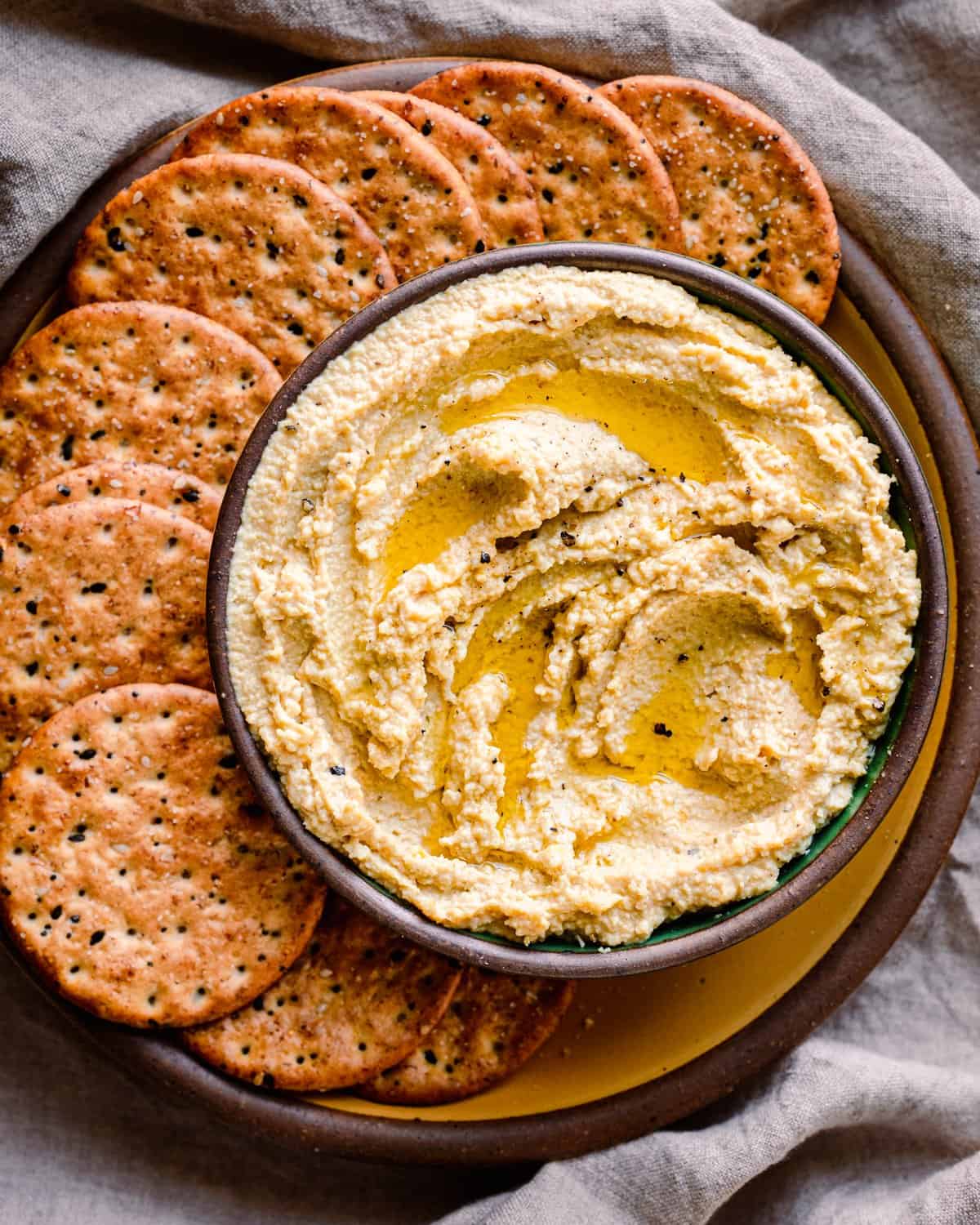
How to make vegan ricotta (step-by-step photos)
Soak your raw cashews in cool water overnight, or for a minimum of 8 hours. Drain and rinse with cool water.
Add your cashews to a a food processor bowl, along with the lemon zest, lemon juice, pickle juice, and water.
Blend until the mixture comes together and is as smooth as possible.
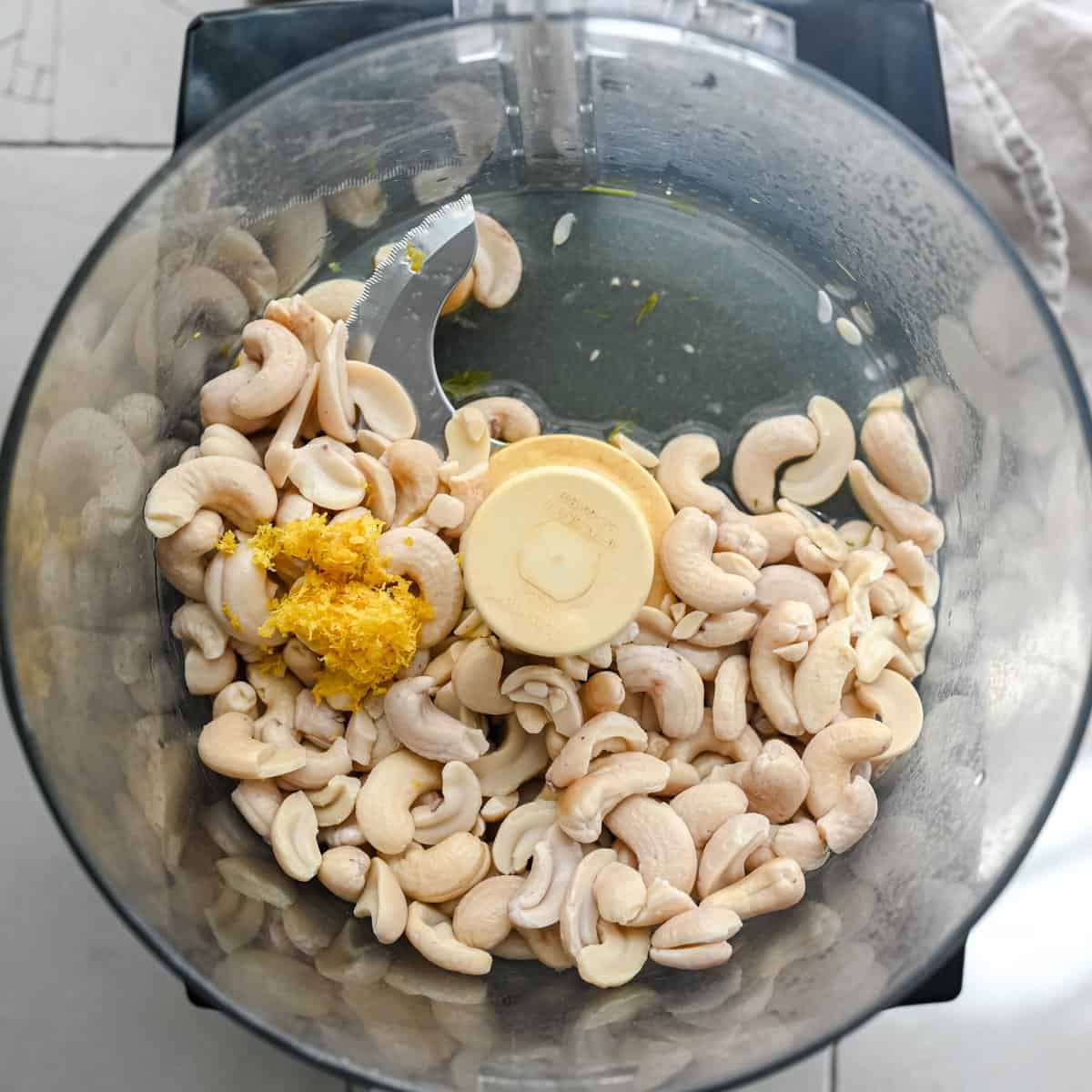
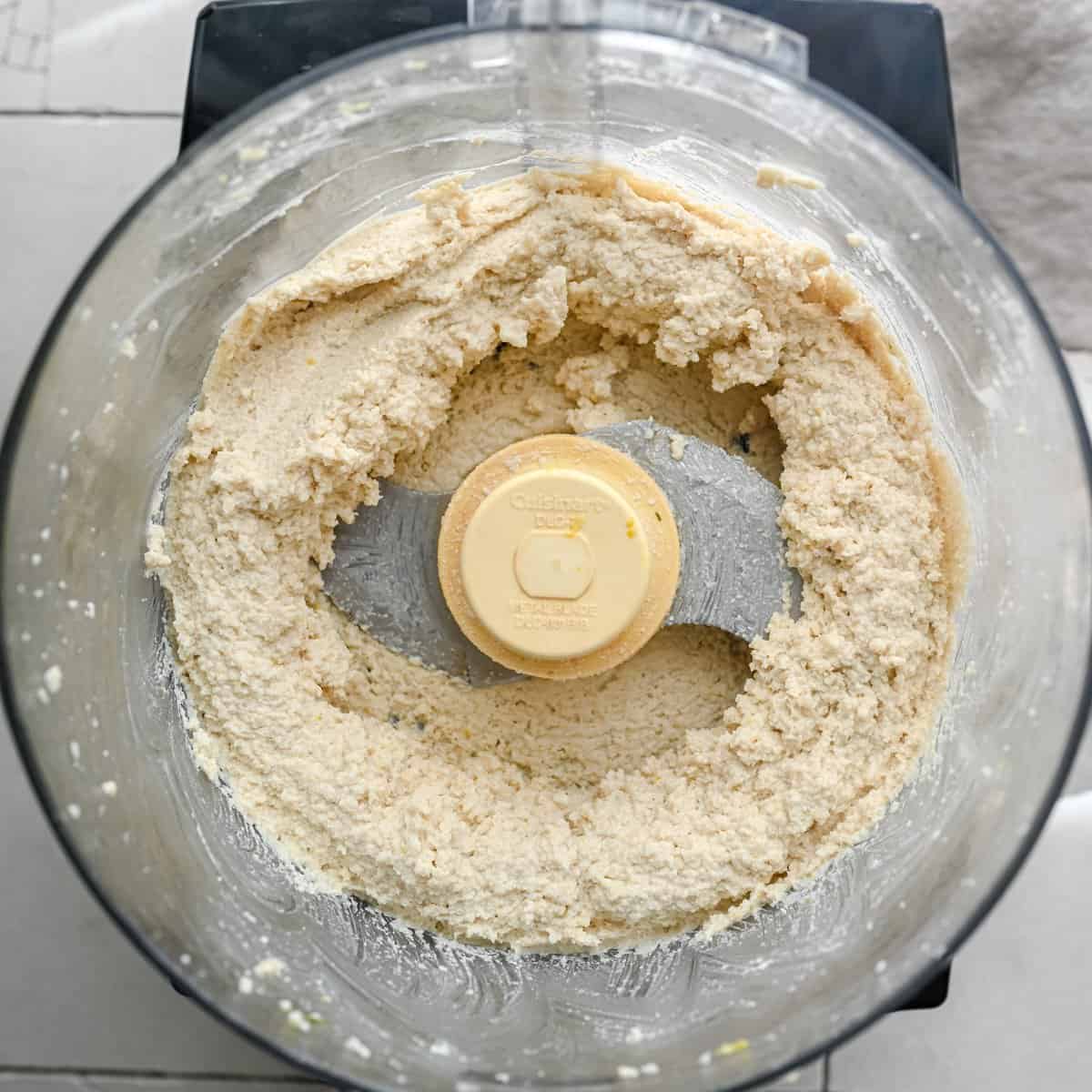
Add in the nutritional yeast, miso, garlic, onion powder, salt, pepper, and olive oil.
Pulse repeatedly until the mixture resembles ricotta cheese, scraping down the sides as you go. For a smoother texture, blend instead of pulse.
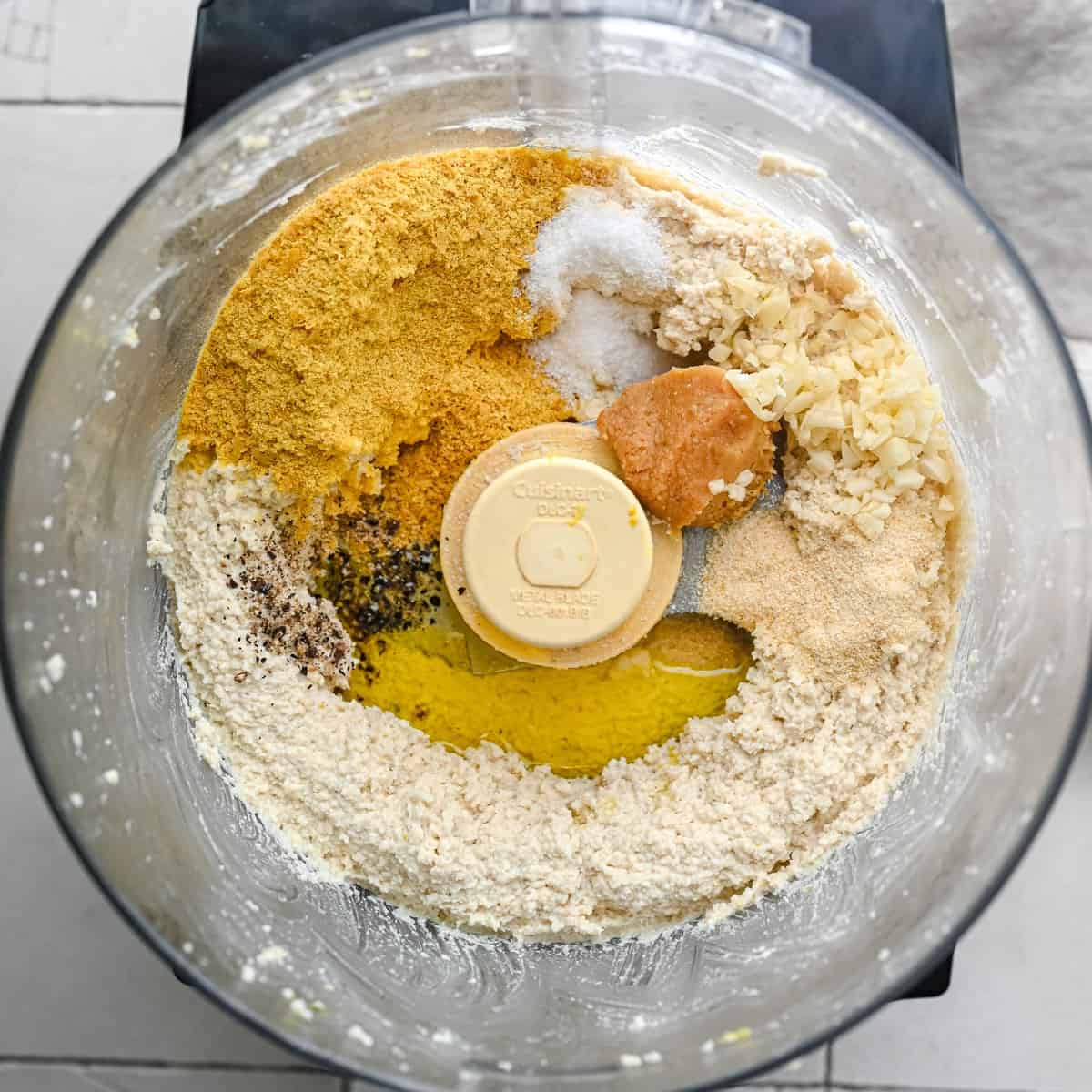
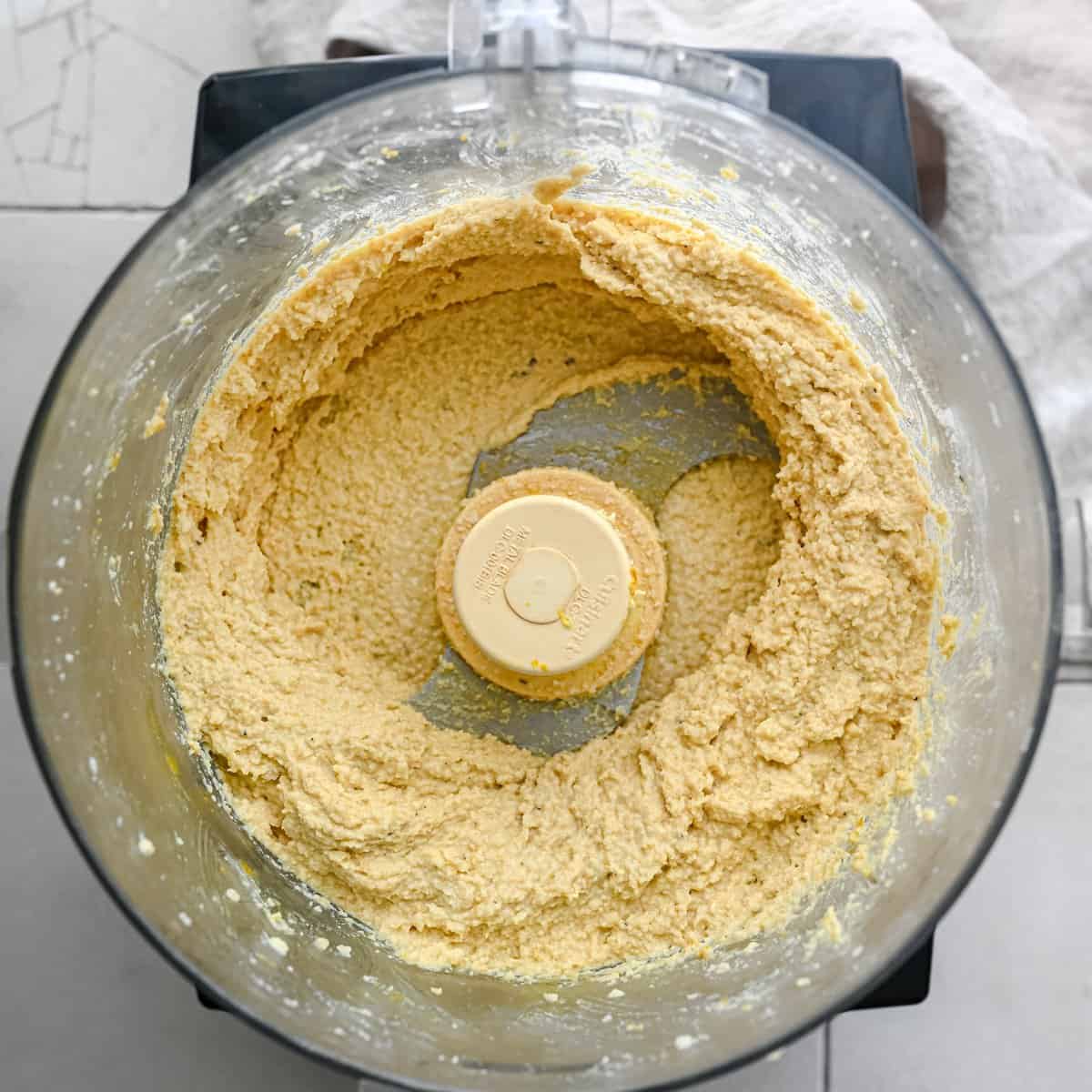
Tips for making this recipe
How to soak cashews
Soaking cashews is super simple! Just add them to a bowl, cover with cool water, and leave to soak for at least 8 hours, or overnight. Drain the soaking water, and rinse the cashews with fresh water.
If you can’t soak them overnight, you can try a quick soak: Add your cashews to a saucepan, cover them with water, and bring to a boil. Boil for 15 minutes. Drain, then rinse the cashews with fresh water.
That said, I recommend the overnight soaking method. Soaking them overnight helps to fully soften them and plump them up, making them a better base for a cheese. It also does a better job at neutralizing their taste.
While I have made this recipe many times with quick-soaked cashews, I got better results with overnight-soaked cashews. If you’re not in a rush, you can even soak the cashews for a full 24 hours, changing the soaking water a few times
Texture of ricotta
Since traditional ricotta does not have a smooth, uniform texture, I don’t completely blend this vegan ricotta and instead pulse it at the end. That said, if you prefer a totally smooth texture, you can blend it longer until it’s as smooth as you’d like.
Add pickle juice for tang
Pickle juice adds a one-two punch with saltiness and tanginess and makes this ricotta extra special. Just be sure to use a pickle variety without any added sugar (e.g., dill pickles, kosher pickles). The first time I tried this recipe I made it with bread and butter pickles (which have added sugar), and the sweet taste was strange. Not inedible, but definitely weird.
If you don’t have pickle juice (it’s just the juice in a jar of pickles), you can use distilled white vinegar. It doesn’t have the exact same flavor, but works decently. You may need to add a pinch more of salt or lemon to compensate.
Lemon flavor
If you really love a lemony flavor, use all of the zest from a medium lemon. If you want just a subtle background lemon flavor, use half the zest. Not sure? Make the ricotta with half the lemon zest, taste, then add more if desired.
PS: If you’re interested in some of the crazy cool things cashews can do to recreate your favorite comfort foods, check out my crazy good Vegan Spinach Artichoke Dip or Vegan Moussaka!
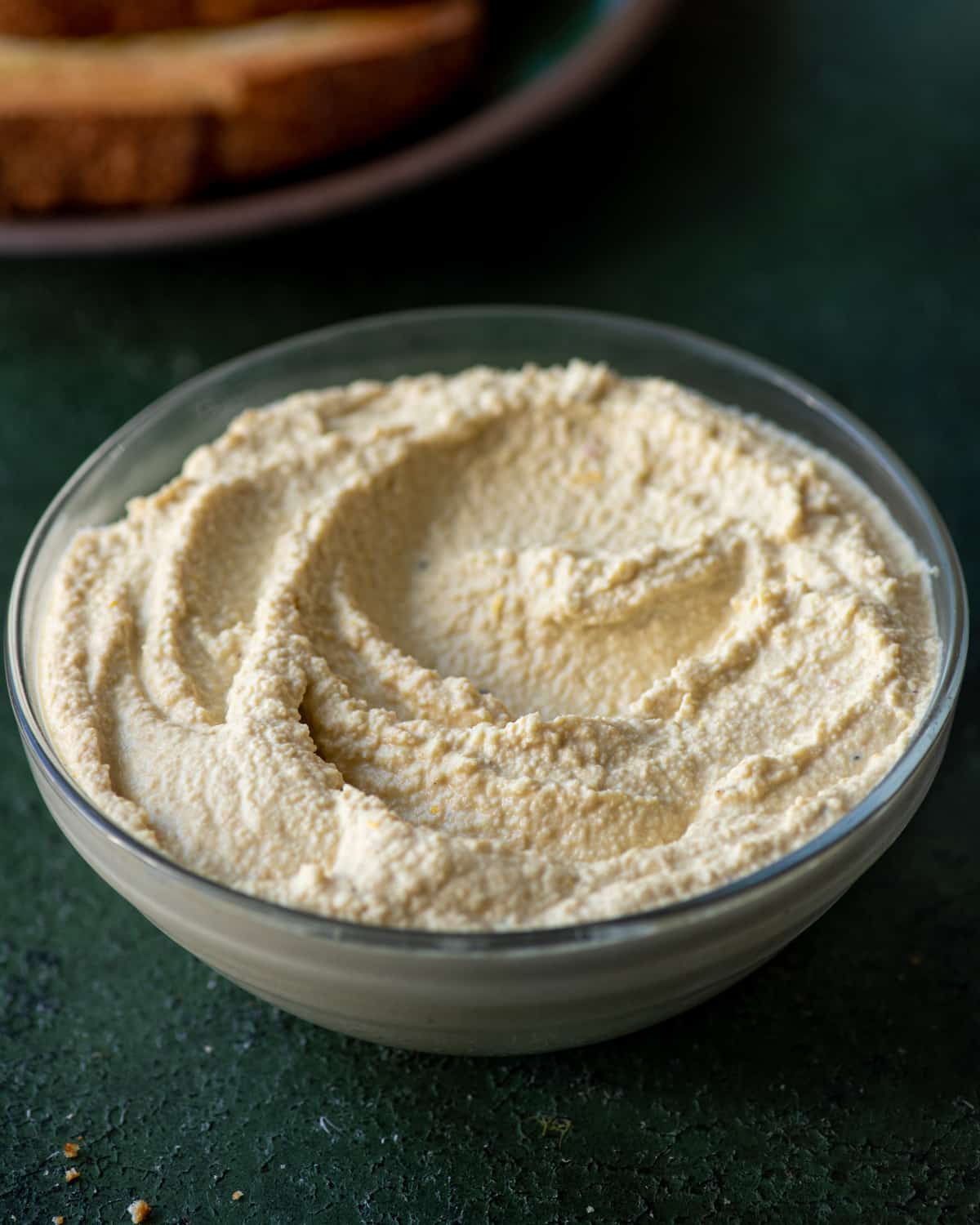
How to use vegan ricotta
Pasta: Like traditional ricotta, this vegan version is particularly great in baked pastas, like lasagna and stuffed shells (both of these recipes use my lighter tofu ricotta, but you can easily use this cashew ricotta instead).
As a spread: Schmear vegan ricotta on a slab of freshly baked bread. Even better, rub a sliced raw garlic clove over a piece of toasted bread, drizzle with extra virgin olive oil, and top with the ricotta for an Italian-inspired toast dream.
In summer, top your ricotta toast with heirloom tomatoes, basil, and balsamic vinegar; for a sweet-savory combo, top with fruit with a drizzle of maple syrup. Or, schmear it on a bagel instead of cream cheese. Or, add to a flatbread, top with fixings, and bake in the oven for a quick flatbread pizza.
As a dip: Drizzle a little good-quality extra virgin olive oil on top (rosemary oil or chili oil are really good!) and serve with crackers, crostini, or crudités.
In salads and bowls: Add to a salad and toss with just a touch of olive oil and a couple splashes of vinegar/lemon juice for an extra creamy salad. Or, add to a grain bowl of your choice.
As a filling: Use it in a savory galette or pie, like in this Savory Asparagus Galette. For an elegant treat in summer, stuff this vegan ricotta into squash blossoms and pan-fry or deep-fry.
Favorite Weeknight Dinner Idea!
1. Cook jumbo pasta shells (~ 22 to 26 shells) until just al dente.
2. Stuff this vegan ricotta into the shells.
3. Cook a package of your favorite vegan sausage (highly recommend Beyond Meat) in a saucepan, breaking it up into crumbles. Once browned, pour in a 24-ounce jar of marinara sauce and toss together.
4. Pour half the sausage sauce into a 13×9″ baking pan. Arrange the stuffed shells on top. Pour the remaining sauce on top.
5. Bake at 350ºF for 20 to 25 minutes. Top with fresh basil.
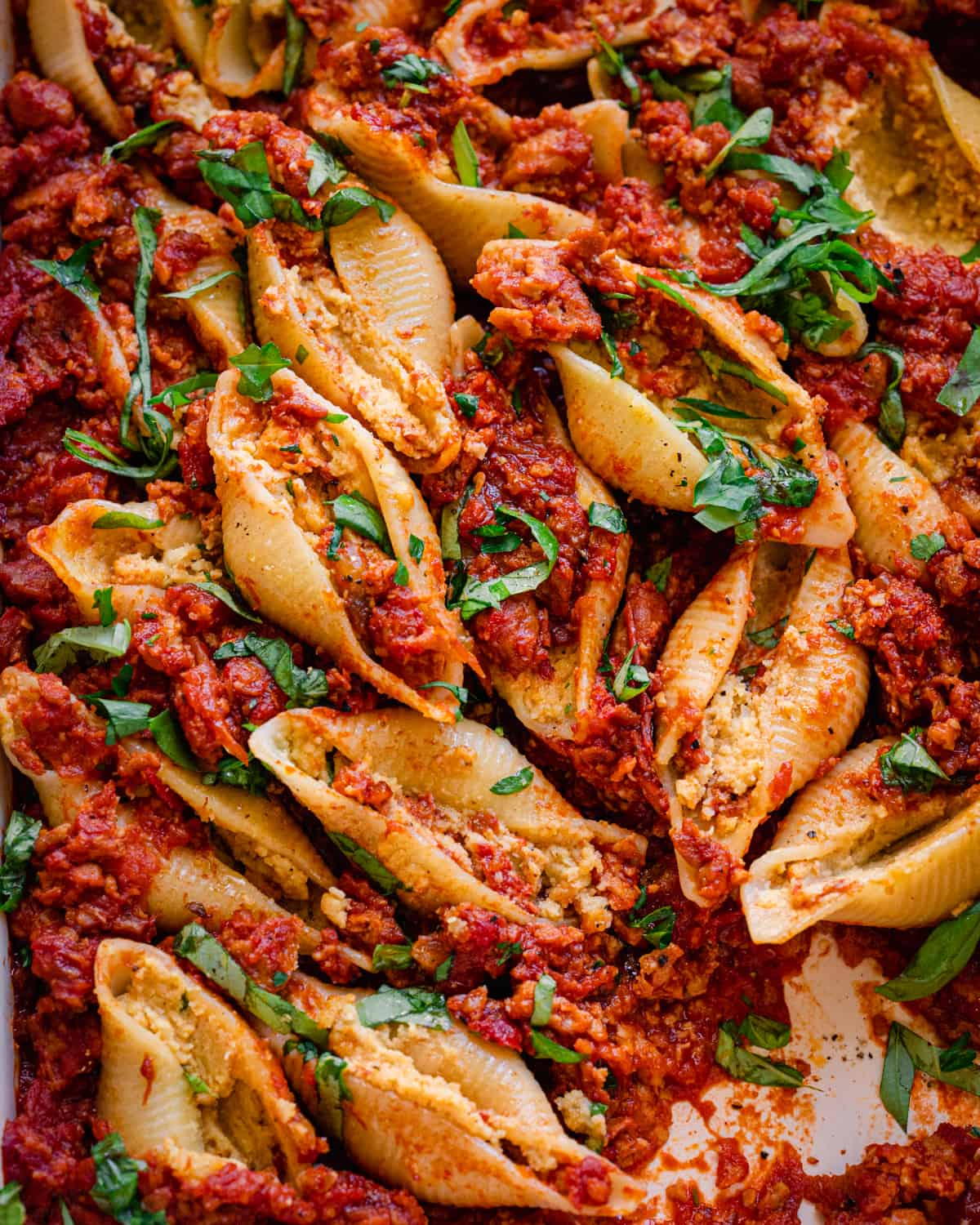
Frequently Asked Questions
No. Roasted cashews taste nutty and roasty, whereas raw cashews are fairly neutral in taste. You want a neutral taste as much as possible when making vegan cheeses.
Second, when raw cashews are soaked, they plump up considerably, enhancing their creaminess. However, once they’re roasted, they lose this ability, so they won’t creamify as much.
Make my tried-and-true Tofu Ricotta instead! It’s creamy and flavorful, just a little lighter and smoother than this cashew-based ricotta. You can find my Tofu Ricotta recipe in this recipe card for Pumpkin Ricotta Stuffed Shells.
Yes, you can. It adds a nice background of savory umami flavor, but it’s still good without. Add a pinch more of salt to compensate.
A great alternative to miso paste is umeboshi paste, which you can find at many Asian grocery stores and specialty grocers like Whole Foods. It’s extremely rich in umami, tangy, and tart. If you do use it, start slowly, just a half teaspoon to begin, as it’s very pungent.
Store it in an airtight container or jar in your fridge. It will stay good for a week. You can also freeze it in an airtight container with only minor changes in texture; it should last 2-3 months.
After chilling, the ricotta does thicken a bit because of the cashews. If you’d like a looser consistency, just add a splash or two of water and blend again.
It makes a heaping 1 1/2 cups. You can easily scale this recipe down if needed.
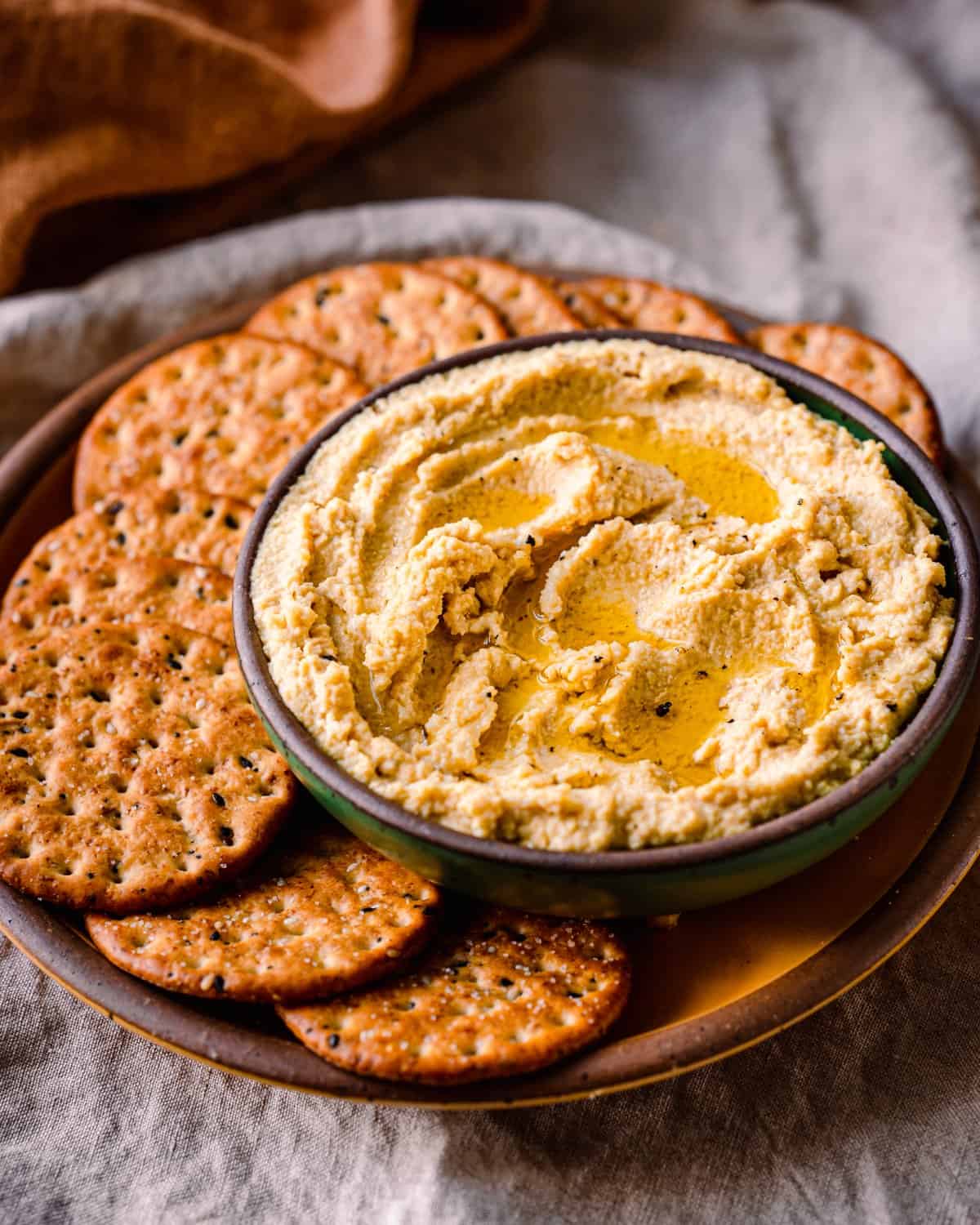
More Vegan Cheeses to Try!
- Fan-Favorite Queso Sauce
- Fermented Cashew Cheese
- Greek-Style Tofu Feta
- Or, check out this post on the Complete Guide to Vegan Cheese
If you love this Vegan Ricotta, please give it a rating and review below! And of course, tag me with your remakes on Instagram!

Introducing
Big Vegan Flavor
Techniques and 150 recipes to master vegan cooking.
Easy Vegan Cashew Ricotta
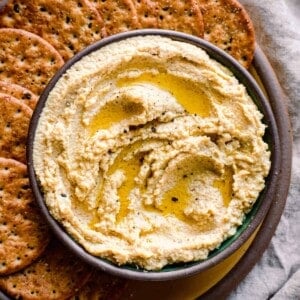
Equipment
- Food processor
Ingredients
- 1 ½ cups (210g) raw cashews
- ¼ cup (60 mL) water
- 2 tablespoons pickle juice (or distilled white vinegar)*
- Zest of ½ of a medium lemon**
- 3 tablespoons freshly squeezed lemon juice
- ¼ cup (20g) nutritional yeast
- 2 garlic cloves, finely chopped
- ½ tablespoon white miso paste
- ¾ teaspoon onion powder
- 1 teaspoon kosher salt, plus more to taste
- ½ teaspoon freshly cracked black pepper
- 1 tablespoon extra virgin olive oil
Instructions
- Soak the cashews overnight: Add the cashews to a bowl, cover with cool water, and leave to soak overnight, or for a minimum of 8 hours.*** Drain the soaked cashews and rinse with fresh water.
- Add soaked and drained cashews to a food processor**** bowl with the water, pickle juice, lemon zest, and lemon juice and blend until the mixture comes together and is smooth as possible.
- Add the nutritional yeast, garlic, miso, onion powder, salt, pepper, and olive oil, and pulse repeatedly until the mixture resembles ricotta cheese, scraping down the sides as you go. If you want a smoother texture, blend instead of pulse.
- Taste, and adjust the flavors to your taste. Add 1 more tablespoon of pickle juice for tanginess, more salt for saltiness, the rest of the lemon zest for more lemon flavor, or more olive oil for more richness.
- You can use now, but I like to store it in the fridge for 1 to 2 hours to further thicken. Store leftovers in an airtight container in the fridge for up to one week.
Notes
Nutrition
Nutrition information is automatically calculated, so should only be used as an approximation.


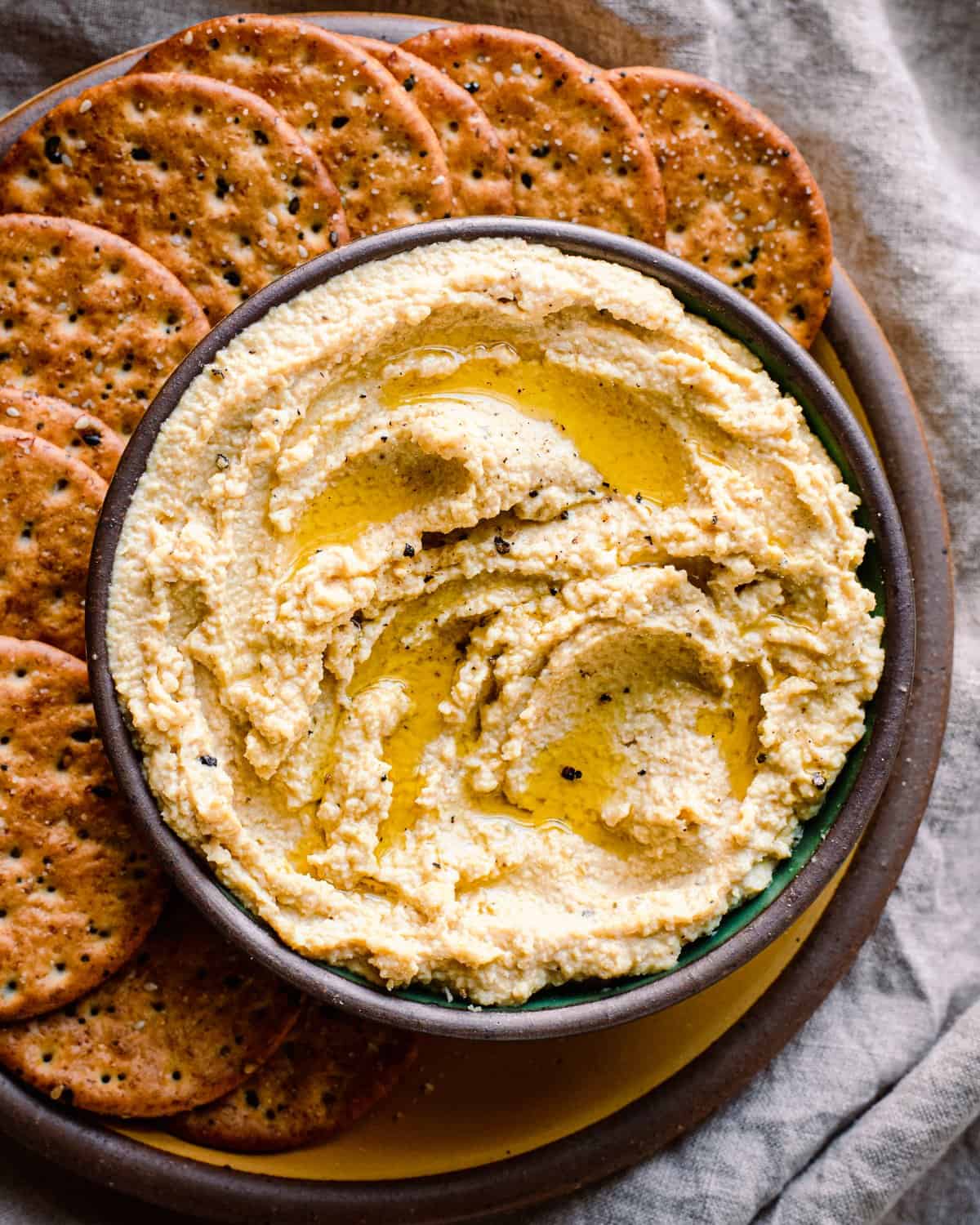
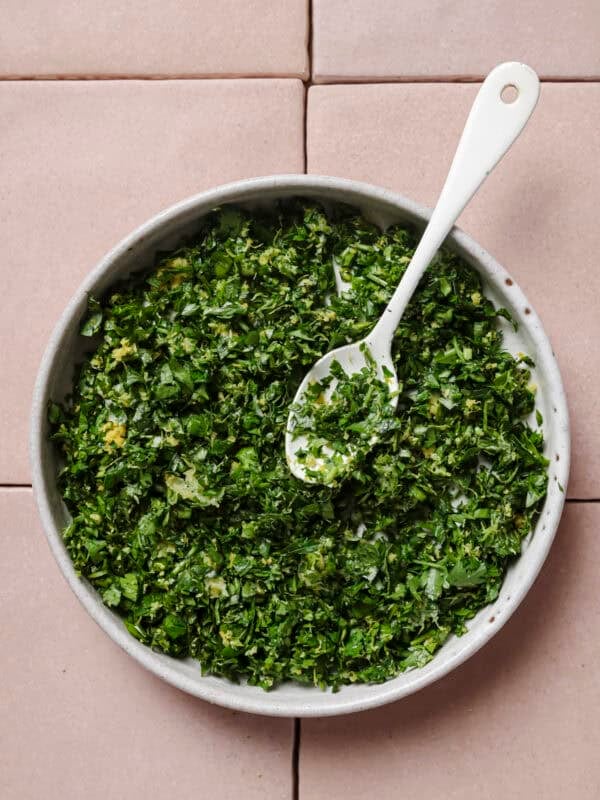
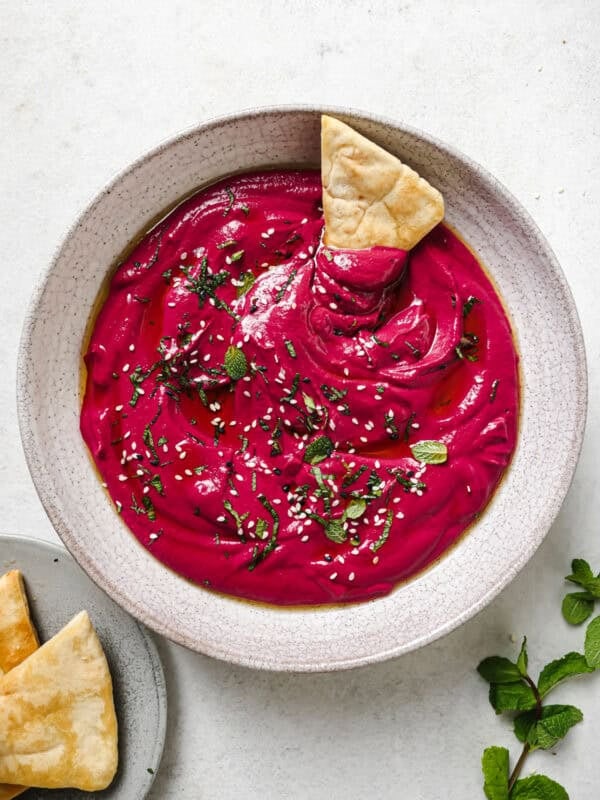
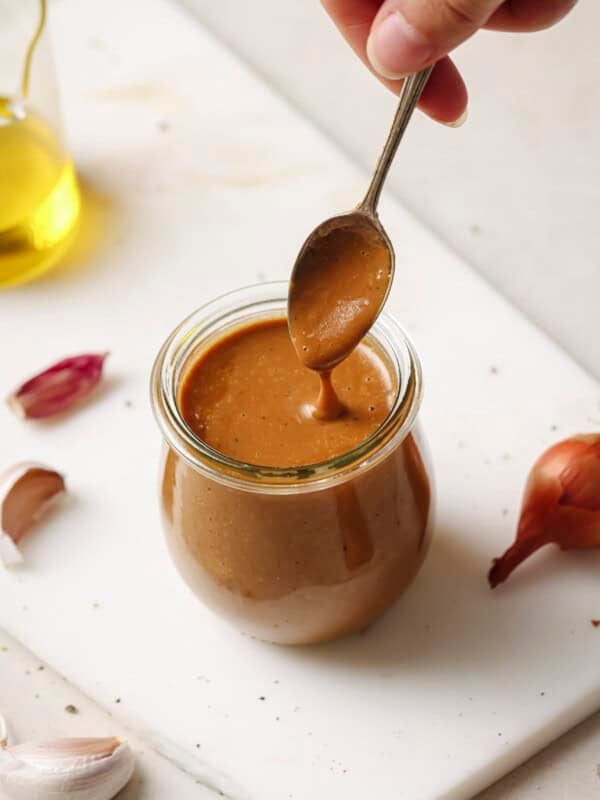
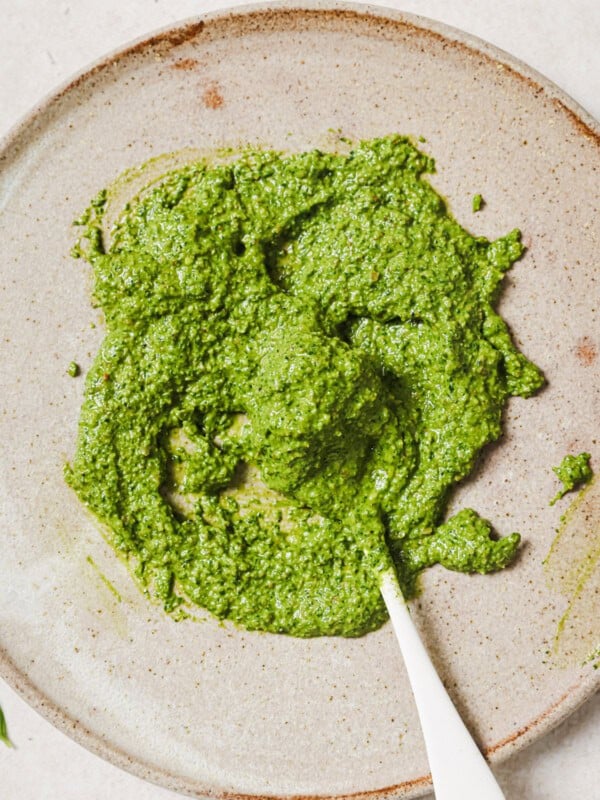









I made this ricotta last night and was sooo delighted with it I can’t stop inventing ways to use it (which might turn into a problem). First off, I had it late-night on rye sourdough with fig jam, and I just finished my breakfast sandwich of heriloom tomato, romaine, avocado and pepitas, using a generous amount of ricotta to replace the mayo. And I’m already planning to have as a condiment to go with Eggplant (Tomato Zucchini Lentiil Herbs de Provence) Gratin. Thank you, Nisha! Please send us more cheese alternatives!
We’re so happy that the ricotta turned out well for you, Jan! I think this recipe will be a great healthier alternative to spreads like mayo going forward 🙂
Thank you for taking the time to leave a comment and for trying out the recipe!
Making in a high speed blender resulted in super creamy ricotta. Next time I will do in food processor….i was worried that wouldn’t be as effective on my quick soaked cashews. Delicious and creamy…more like cashew cream due to blender but I’m going to use in lasagne.
Thanks for sharing that with us, Susan! We are glad you’re able to find a use for the blended ricotta, and we hope you get a chance to try the recipe with a food processor sometime very soon 🙂
Delicious! Used in a pasta recipe that called for regular ricotta, and this really emulated the texture and flavor of the original…in fact it was actually more flavorful!
Thanks for sharing, Erin!
This is a really lovely, easy recipe. I love making a batch of this on a Sunday and using it in different ways throughout the week: in salads, as a spread in sandwiches, grain bowls, or pasta.
Thanks for the lovely feedback, Kayla!
Made as stuffed shells with a simple marinara sauce and vegan sausage. Another winner. My wife didn’t know it was vegan. Definitely will make again!
Delicious! Thanks for sharing, Mike! 🙂